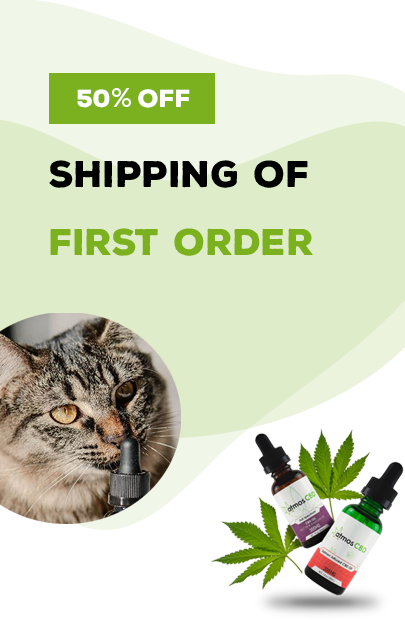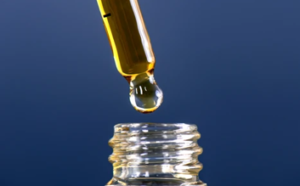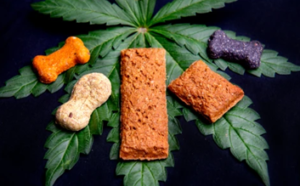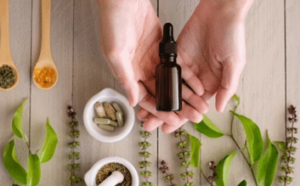Liver damage is a serious health concern that can have a significant impact on overall well-being. As people explore alternative treatment options, CBD oil has emerged as a potential remedy for liver damage. This article will discuss the effectiveness of CBD oil in supporting liver health, key considerations when choosing CBD oil for liver damage, recommended dosage and administration methods, potential side effects or interactions, recommended brands or products, the importance of consulting a healthcare professional, and additional lifestyle changes or supplements that can support liver health.
Can CBD oil help with liver damage?
Is CBD good for liver? Does CBD help liver disease? Research suggests that CBD, a non-psychoactive compound found in cannabis plants, may have potential benefits for liver health. Studies on animal models have shown that CBD has anti-inflammatory, antioxidant, and hepatoprotective (liver-protecting) properties.
These properties indicate that CBD oil might have a positive impact on liver damage by reducing inflammation and oxidative stress and promoting overall liver health.
Key Considerations When Choosing CBD Oil for Liver Damage
When selecting CBD oil for liver damage, several factors should be considered. By considering these factors, you can make an informed decision and choose a high-quality CBD oil that may potentially benefit liver health.
Quality and Reputation
Select CBD oil from reputable brands known for their commitment to quality and transparency. Look for brands that provide third-party lab testing to ensure the purity and potency of their products.
Lab Testing
Ensure that the CBD oil has undergone third-party lab testing, which verifies the product’s cannabinoid content and checks for the presence of contaminants such as pesticides, heavy metals, and residual solvents.
Source of Hemp
Choose CBD oils derived from organically grown hemp. Organically grown hemp is cultivated without the use of pesticides, herbicides, or chemical fertilizers, reducing the risk of exposure to harmful substances.
Extraction Method
Opt for CBD oils that are extracted using safe methods, such as CO2 extraction. This method preserves the integrity of the cannabinoids and terpenes while minimizing the presence of unwanted compounds.
CBD Concentration
Consider the CBD concentration in the oil. Higher concentrations may be suitable for individuals with more severe liver damage, while lower concentrations may be appropriate for those with mild liver issues.
Extraction Type
Decide whether you prefer full-spectrum, broad-spectrum, or CBD isolate. Full-spectrum CBD oil contains a wide range of cannabinoids, terpenes, and other beneficial compounds, while broad-spectrum CBD oil is THC-free but retains other cannabinoids and terpenes. CBD isolate contains only CBD, without any other compounds.
Other Beneficial Cannabinoids and Terpenes
Look for CBD oils that contain additional beneficial cannabinoids and terpenes, such as CBG, CBC, limonene, or myrcene. These compounds may contribute to the overall effectiveness of CBD oil in supporting liver health.
Are there specific cannabinoids or terpenes that are beneficial for liver health?
While CBD shows promise for liver health, other cannabinoids and terpenes found in full-spectrum CBD oil may also contribute to its potential benefits. Research suggests that cannabinoids like cannabigerol (CBG) and cannabichromene (CBC) exhibit anti-inflammatory and hepatoprotective properties. Terpenes such as limonene and myrcene have shown potential anti-inflammatory and antioxidant effects as well. Choosing a full-spectrum CBD oil can provide a wider range of these beneficial compounds.
What dosage and administration methods are recommended for liver damage?
The optimal dosage of CBD for liver damage may vary depending on individual factors such as weight, severity of liver damage, and sensitivity to CBD. It is recommended to start with a low dosage and gradually increase it until the desired effects are achieved.
CBD oil can be administered orally by placing drops under the tongue or ingesting CBD capsules. Topical applications or vaporization methods may also be suitable for specific cases. Consulting with a healthcare professional can help determine the appropriate dosage and administration method.
Potential Side Effects or Interactions with CBD Oil and Liver Medications
Due to the potential interactions, it is crucial to consult with a healthcare professional before using CBD oil, especially if you are taking liver medications or any other medications. They can provide personalized guidance, assess potential risks, and determine if CBD oil is suitable for you.
CBD Oil Side Effects on Liver
While CBD is generally well-tolerated, some individuals may experience mild side effects when using CBD oil. These side effects can include dry mouth, fatigue, changes in appetite, or gastrointestinal discomfort. These side effects are typically temporary and subside as the body adjusts to the CBD oil.
Interactions with Liver Medications
CBD can interact with liver medications because it inhibits the activity of certain enzymes in the liver responsible for metabolizing drugs. This can affect the effectiveness of liver medications, potentially leading to higher or lower levels of the medication in the bloodstream. It is important to consult with a healthcare professional before using CBD oil if you are taking liver medications to ensure there are no potential interactions.
Are there any brands or products specifically recommended for liver damage?
While specific recommendations for brands or products for liver damage should be made by a healthcare professional who can consider individual circumstances, one brand that offers full-spectrum CBD oils and sublingual oils is Atmos CBD.
Atmos CBD is known for its high-quality CBD products and commitment to transparency. Their full-spectrum oils contain a wide range of beneficial cannabinoids, terpenes, and other plant compounds, which may potentially support liver health. Full-spectrum CBD oil offers the “entourage effect,” where the various compounds work synergistically to enhance the overall benefits.
Meanwhile, their sublingual oils allow for easy and efficient absorption of CBD when placed under the tongue. This method enables quicker onset of effects compared to other administration methods.
Should I consult with a healthcare professional before using CBD oil for liver damage?
Yes, it is highly recommended to consult with a healthcare professional before using CBD oil for liver damage or any other medical condition. While CBD shows promise in supporting liver health, it is important to consider individual circumstances, medical history, and potential interactions with other medications or treatments.
Are there other lifestyle changes or supplements that can support liver health?
In addition to using CBD oil, making certain lifestyle changes and considering specific supplements can support liver health. Other lifestyle changes and supplements that can support liver health include:
Maintain a Healthy Weight
Excess weight and obesity can contribute to liver damage and fatty liver disease. Adopting a healthy eating plan and engaging in regular physical activity can help maintain a healthy weight and support liver health.
Limit Alcohol Consumption
Excessive alcohol consumption can lead to liver damage, such as alcoholic liver disease. Limiting or abstaining from alcohol can significantly improve liver health and prevent further damage.
Avoid Tobacco and Illicit Drugs
Smoking tobacco and using illicit drugs can have detrimental effects on liver health. Quitting smoking and avoiding illicit drug use can contribute to overall liver health.
Practice Safe Sex
Certain viral infections can cause liver damage. Practicing safe sex by using barrier methods, such as condoms, can reduce the risk of acquiring these infections.
Protect Yourself from Hepatitis Viruses
Hepatitis A, B, and C are viral infections that can cause liver inflammation and damage. Vaccinations are available for hepatitis A and B, and practicing good hygiene and avoiding contact with contaminated blood or body fluids can help prevent infection.
Consider Supplements
Some supplements have been studied for their potential liver-protective properties.
These include:
- Milk Thistle: Milk thistle extract, containing the active ingredient silymarin, is believed to have antioxidant and anti-inflammatory effects that may support liver health. It is commonly used as a supplement for liver support.
- N-acetylcysteine (NAC): NAC is an antioxidant that can help replenish glutathione, a vital antioxidant for liver function. It has been studied for its potential protective effects on the liver.
- Vitamin E: Vitamin E is an antioxidant that may help reduce oxidative stress and inflammation in the liver. It has been investigated for its potential benefits in liver diseases.
Take Care Of Your Liver with CBD Oil
CBD oil shows promise in supporting liver health and potentially mitigating liver damage. However, further research is needed to fully understand its effectiveness and safety in specific liver conditions. When considering CBD oil for liver damage, it is crucial to choose high-quality products, consult with a healthcare professional, and consider other lifestyle changes that promote overall liver health.
Atmos CBD is an example of a reputable brand known for its high-quality CBD products. They offer full-spectrum CBD oils and sublingual oils that provide a range of beneficial cannabinoids, terpenes, and other plant compounds. By choosing a trusted brand like Atmos CBD, individuals can have confidence in the quality and effectiveness of the CBD oil they are using. Visit them today.









